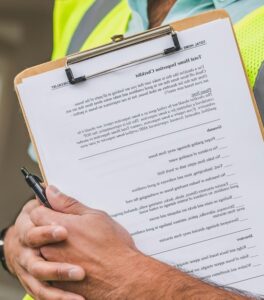If you’re unable to pay your mortgage during the COVID-19 crisis, you’re not alone. Many people are struggling to pay their bills during the pandemic. According to Forbes, there are federal and state laws to help homeowners keep their homes during the crisis.
According to the Pew Research Center, as of March 2020, almost 1/4 of Americans are worried that the pandemic will severely affect their personal finances. That was March. The situation has gotten much worse for many people.
According to Forbes, just between March 15 and April 4, almost 17 million Americans filed for unemployment compensation. Many more millions have filed for unemployment benefits since that date.
Read my recent article entitled Can I Stop Paying Creditors During The COVID Pandemic? You’ll find information that will help you understand whether you still have to pay your debts during the COVID-19 pandemic.
The CARES Act
To help homeowners and many non-homeowners during this crisis, Congress passed a law to help them. The Coronavirus Aid, Relief, and Economic Security Act (CARES) provides help for homeowners.
Homeowners, that have a mortgage that is federally backed or owned (such as an FHA or VA mortgage) may qualify for up to 12 months of mortgage forbearance.
While there are short-term benefits to mortgage forbearance, there may be long-term consequences.
Other state mortgage relief options may be available. For example, if you live in Connecticut, a Connecticut bankruptcy lawyer can explain your rights and options.
The CARES ACT mortgage forbearance requirements
This law was signed by President Trump on March 27, 2020. The CARES Act provides additional help such as stimulus checks, small-business help, and other types of help.
A new pandemic bill was just enacted in late December 2020, which provides additional types of relief. The CARES Act gives borrowers of the mortgages (federally backed or owned) up to 180 days of forbearance if they ask for forbearance and meet the conditions of the CARES Act.
Mortgagees (borrowers) can ask for an extension of another 180 days of forbearance.
To qualify for the mortgage forbearance, according to Forbes, borrowers must “attest to their mortgage-servicer, that they are enduring financial hardship as a result of the coronavirus crisis.”
Once the proper attestation is made, the service holder is required to grant the forbearance.
Once a borrower requests hardship forbearance due to the COVID-19 pandemic, the act requires the servicer to offer a CARES Act forbearance.
Reasons why the grant of mortgage forbearance may cause problems later
The CARES Act isn’t clear on what borrowers must do to pay the delayed payments once the 180 or 360 day forbearance period ends. Different lenders and services are setting different rules.
There are concerns for the homeowner:
- May be required to pay back the payments in one lump sum immediate payment – or in a short time frame. These lump sum payments are called “balloon” payments.
- Other mortgage holders may work out some sort of extended payment arrangement for the arrears – provided you continue to make the new payments as they become due
A few of the possible repayment options, according to Forbes and the Consumer Financial Protection Bureau (CFPB) are:
- Payment of the payments that would have been due during the forbearance period – in an immediate lump sum.
- Payment of a portion of the accrued forbearance payments along with the new payments. For example, if your mortgage is $1,000 – then you might pay $1,500 a month for two years so you can catch up on the arrears
- Extending the time for repayment. Using the example, you would pay the $1,000 payment each year – but the length of the loan would be extended to include at least another year of payments.
The request for mortgage forbearance
You must ask for the forbearance of mortgage payments if you’re using the CARES Act. The forbearance is not automatic.
Not every mortgage holder is required to provide forbearance (generally just mortgage holders that are federally backed or owned). Basically, you need to:
- Determine which company services your mortgage. That company is often different than the original mortgage holder.
- Review if your mortgage is federally backed or owned. About ½ of all mortgages are owned or backed by Fannie Mae or Freddie Mac. These entities have their own lookup tools.
- Contact your mortgage lender/service provider and explain why you have a hardship. You should be ready to discuss your income status, your assets, and your expenses. If you have a private mortgage loan (one that isn’t federally backed), you should ask whether they have any hardship options. You should also check what state mortgage relief laws, rules, and orders apply for your state.
- Be sure to understand what happens once the mortgage period ends. It’s best to know upfront so you know how much to save – if you can.
You should make sure the forbearance arrangements are in writing.
Does COVID-19 mortgage forbearance affect your credit?
Any forbearance through the CARES Act should not affect your credit. That’s because the CARES Act amends the Fair Credit Reporting Act. “The amendment instructs lenders to report that borrowers are “current” on their credit obligations when a special payment accommodation (like a forbearance) is in place specific to COVID-19.”
There is a catch. You do need to be current on your mortgage before you ask for forbearance – otherwise, you can be reported as delinquent.
You would need to bring your account current in order to stop the reporting of delinquencies.
Homeowners should review their credit reports during the forbearance period to verity your lender is reporting your accurate credit status.
Mortgage Payment Deferrals
As of January 1, 2021 (according to Forbes and unless the December 2020 COVID-19 law changes things) mortgage holders may be able to use a payment deferral option. “This program is being undertaken jointly by Fannie Mae and Freddie Mac at the direction of the Federal Housing Finance Agency (FHFA). (This payment deferral program does not apply to FHA, VA, and Guaranteed Rural Housing mortgages.)”
“Borrowers who can resume their monthly payments but can’t also afford to bring their mortgages current with a lump sum payment or a repayment plan may have the option to defer their past due balance (principal and interest) to whichever of the following dates takes place first:
- The mortgage maturity date
- The loan payoff date
- Upon sale or transfer of the property”
The CFPB does recommend that you continue to make your mortgage payments during the COVID-19 pandemic if possible.






Be First to Comment